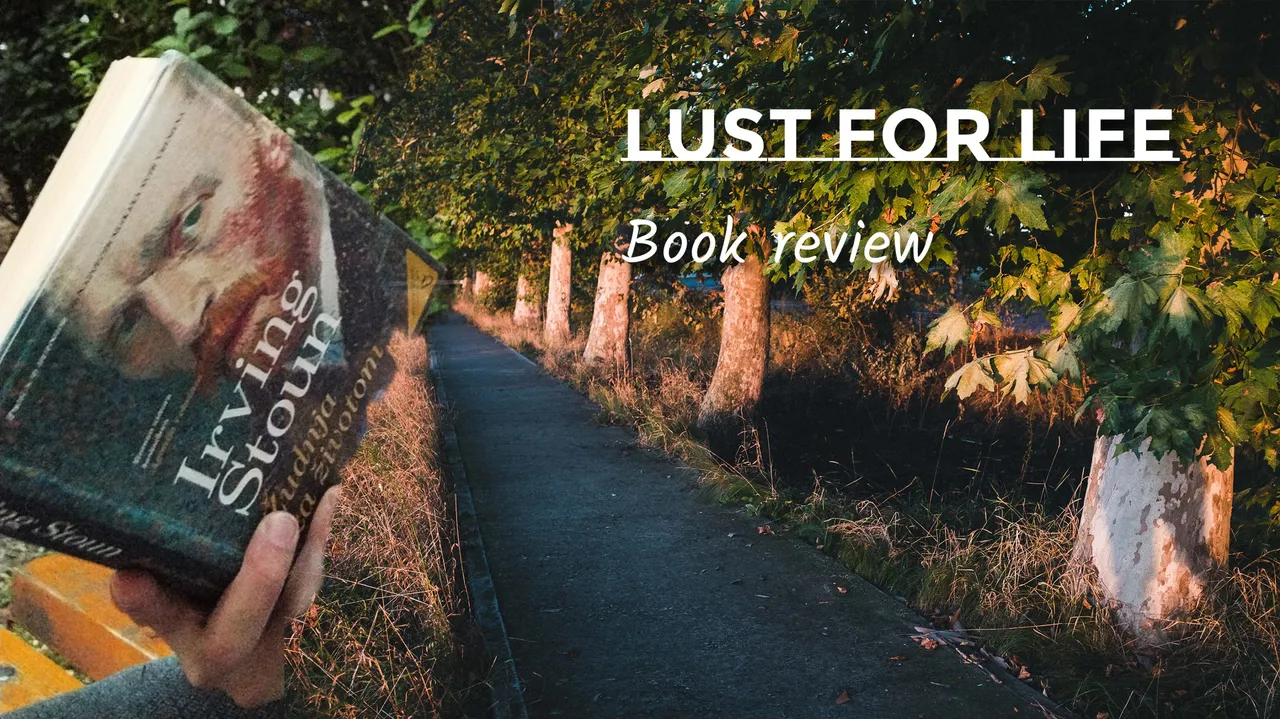Biographies always strike harder than ordinary stories, and I barely managed to finish this one to the end - Vincent's personality was so striking and tragic that anyone, whether an artist or not, will empathize with his misfortune.

Irving Stone created the novel based on the correspondence between Vincent and his brother Theo (about 700 letters), as well as through stories from contemporaries who had the opportunity to meet him while he was still alive. The story follows Vincent from his youth when he worked as an art dealer, to his preaching in the brutal Belgian mines, until he discovered his passion for painting and wandered in search of landscapes, traveling through the art capitals and encountering other well-known figures of the time, such as Gauguin, Cézanne, Zola...
That passion became his entire world - the craving for life was actually a craving for artistic expression, for improvement, everything else was subordinated to that. His life was worth living as long as he had a passion for painting; without it, it made no sense. He enjoyed the bright colors of nature, as well as watching laborers spending their lives in the field.
“I cannot draw a human figure if I don't know the order of his bones, muscles or tendons. Same is that I cannot draw a human face if I don't know what's going on his mind and heart. In order to paint life one must understand not only anatomy, but what people feel and think about the world they live in. The painter who knows his own craft and nothing else will turn out to be a very superficial artist.”
He had the misfortune of not being valued as a person and a painter; often giving them reason with his impulsive, obsessive nature. And his paintings (it was interesting to search for them through descriptions on Google) were like his character, impulsive, unbalanced, swirling. He didn't want to depict scenes as the eye sees them, but as the heart feels them. The world wasn't ready for him.
I must admit that the book was a slow read, and it took effort to stay with it longer. The writing style is very simplified, the dialogues often dry and, after a while, tiresome. This work needed a bit of magic to be truly majestic. It's a well-told story, but it lacks some essence to amplify it. Vincent was a passionate personality, and that's something that's not sufficiently present in the novel, a novel that begged for more powerful prose and fewer precise, concise expressions. A meticulous saga about a dissolute man.
What fascinated me perhaps more than Vincent's story itself is another character, his brother Theo. Without this wonderful, divine man, the world would never have experienced Vincent's brilliance, nor would the artist have succeeded without his brother's unconditional help. He is Frodo's Sam, always there to make sacrifices, in good and in madness.

In any case, a book worth reading, especially for those who are led by emotions and are interested in artistic realms. Because this may be the best way to get to know the character and work of this timeless, tragic genius, along with all his imperfections. You won't be able to hold back tears because life often isn't fair, but despite that, what truly matters remains to shine like a bright sun across time and space.
4/5 stars